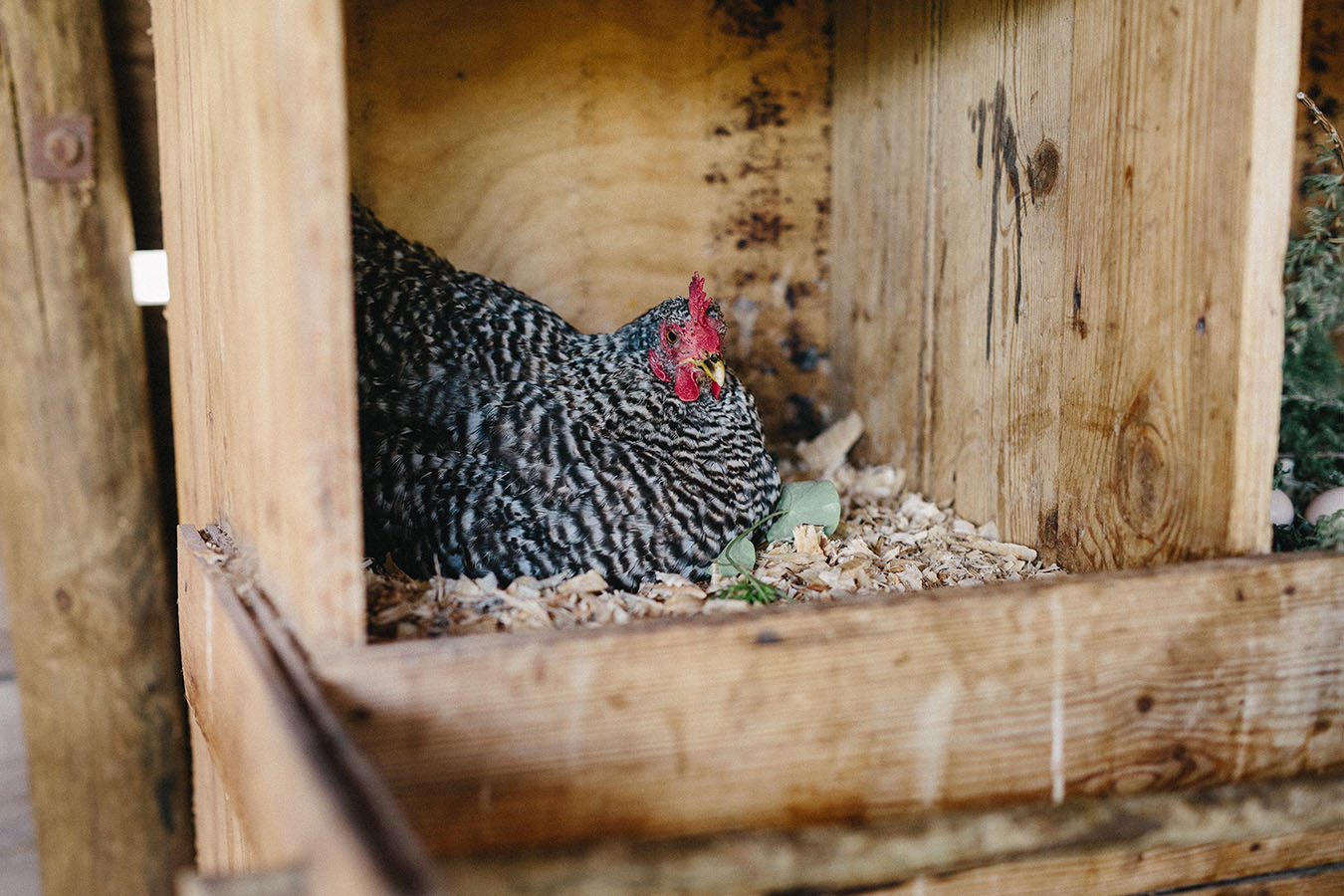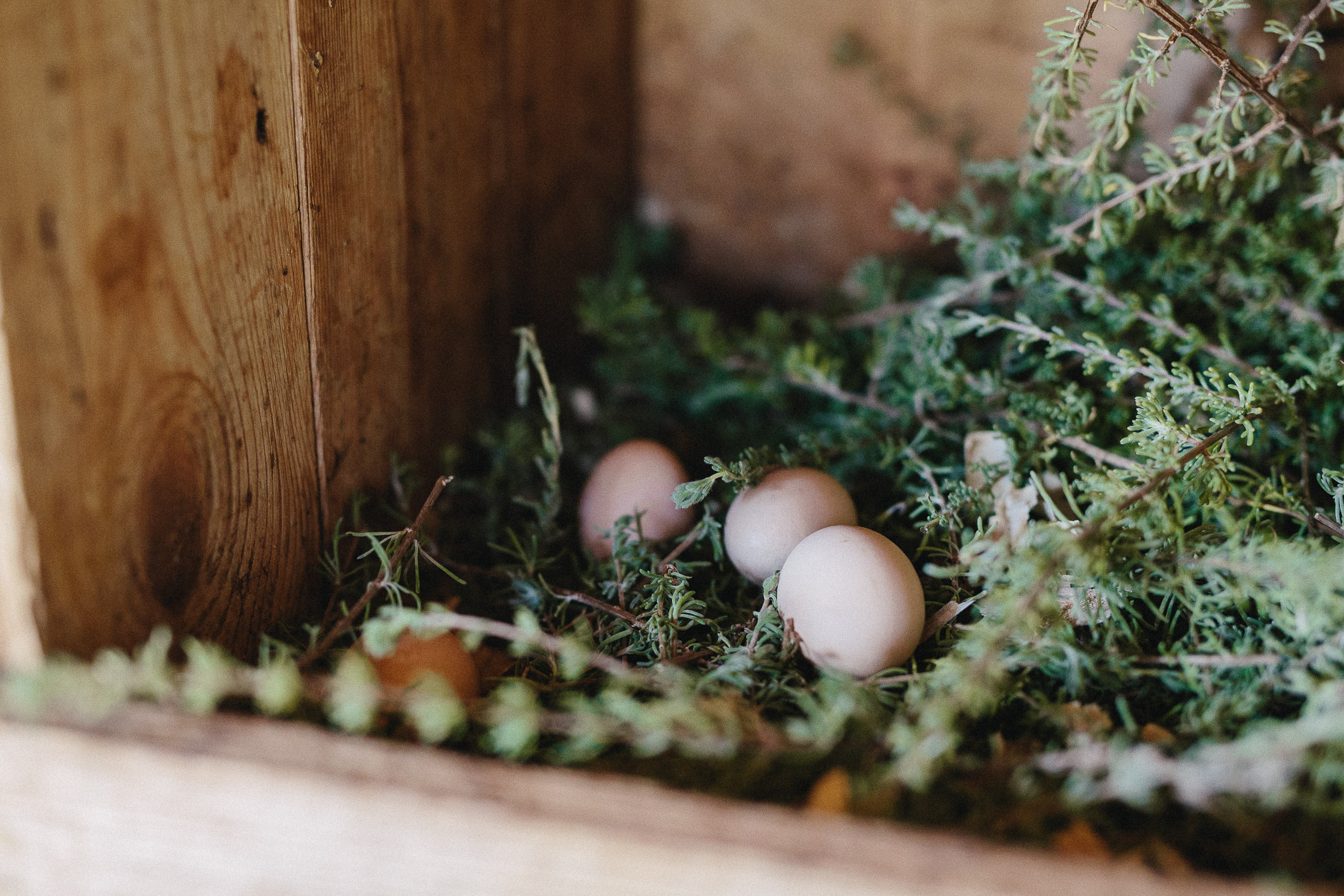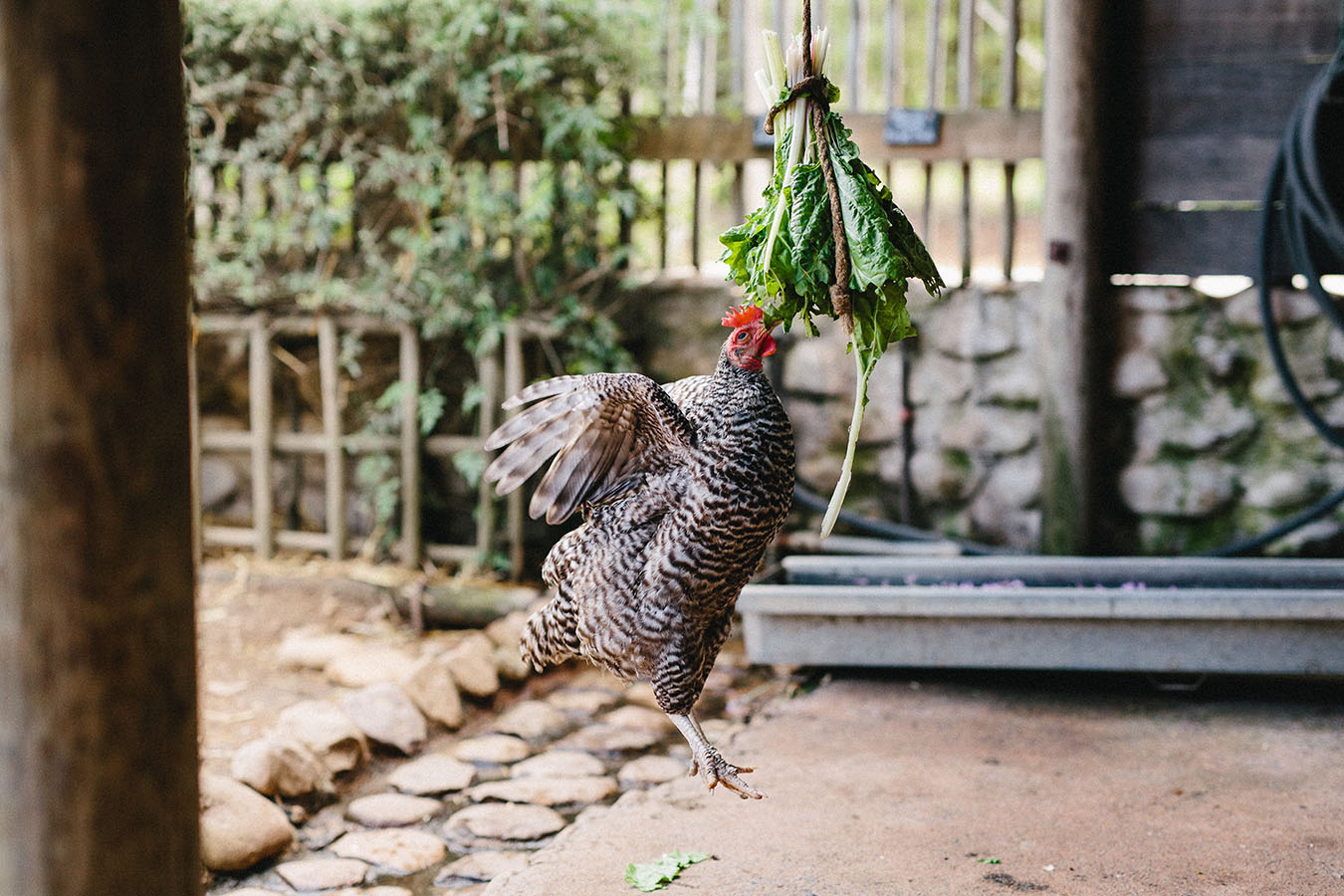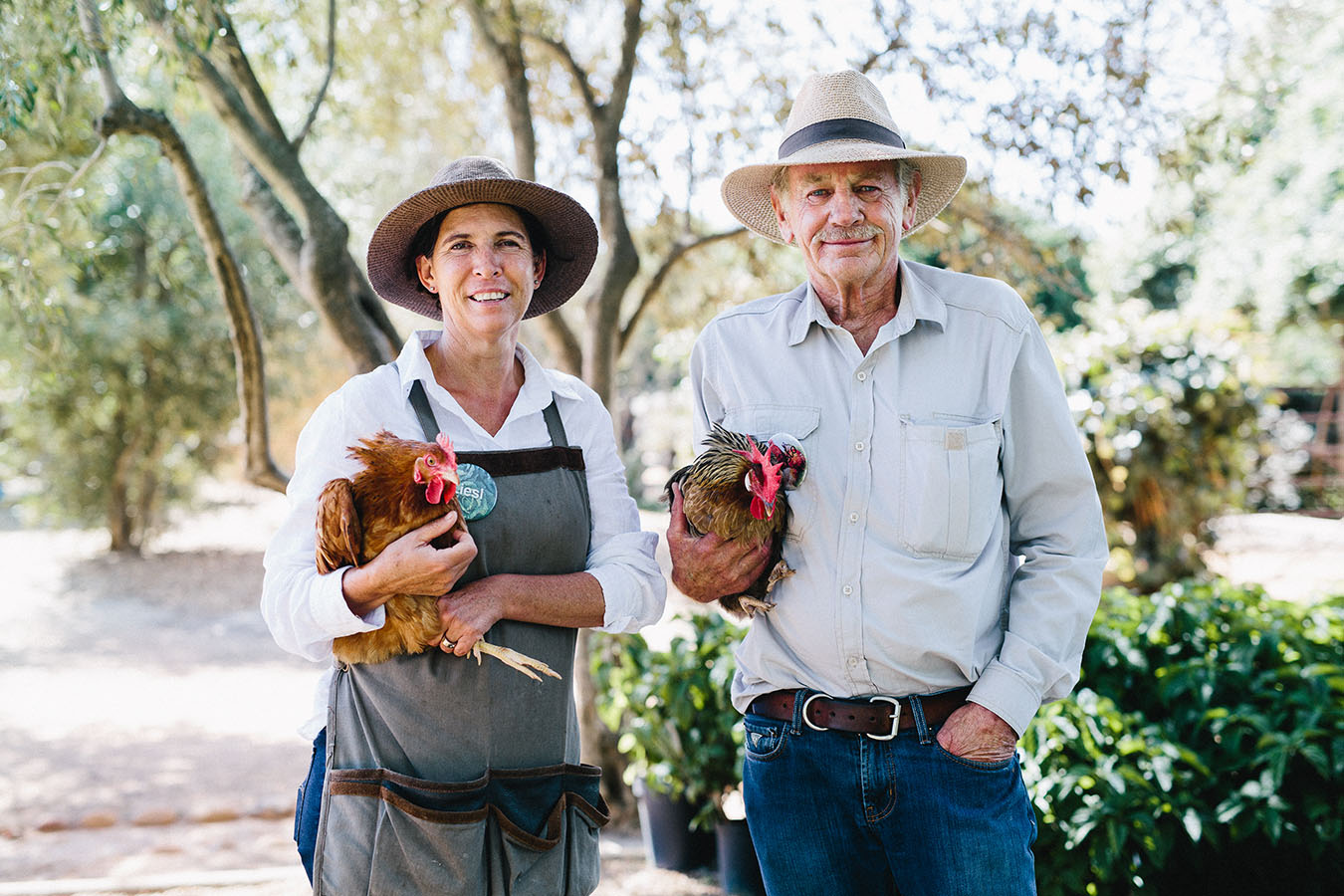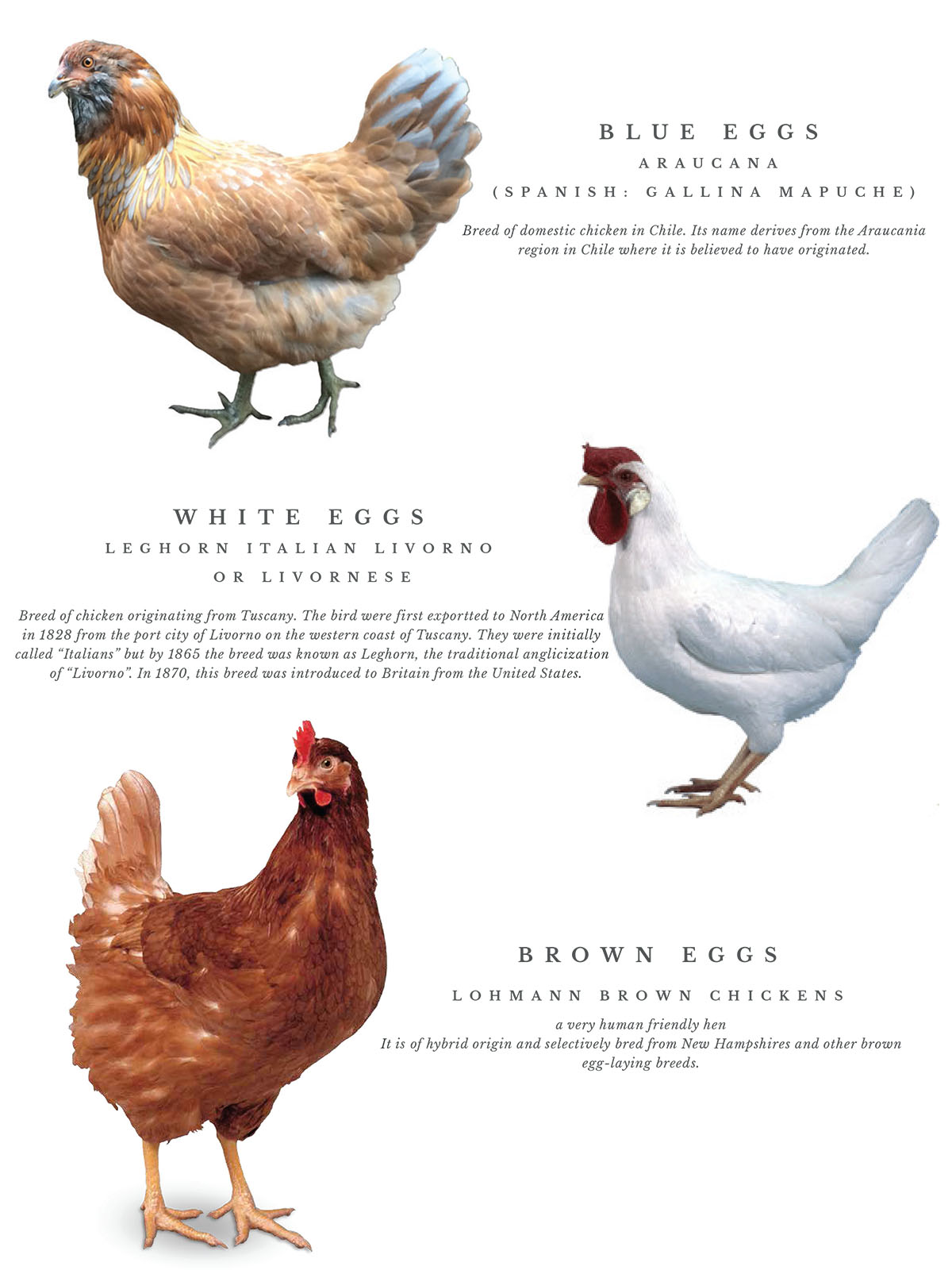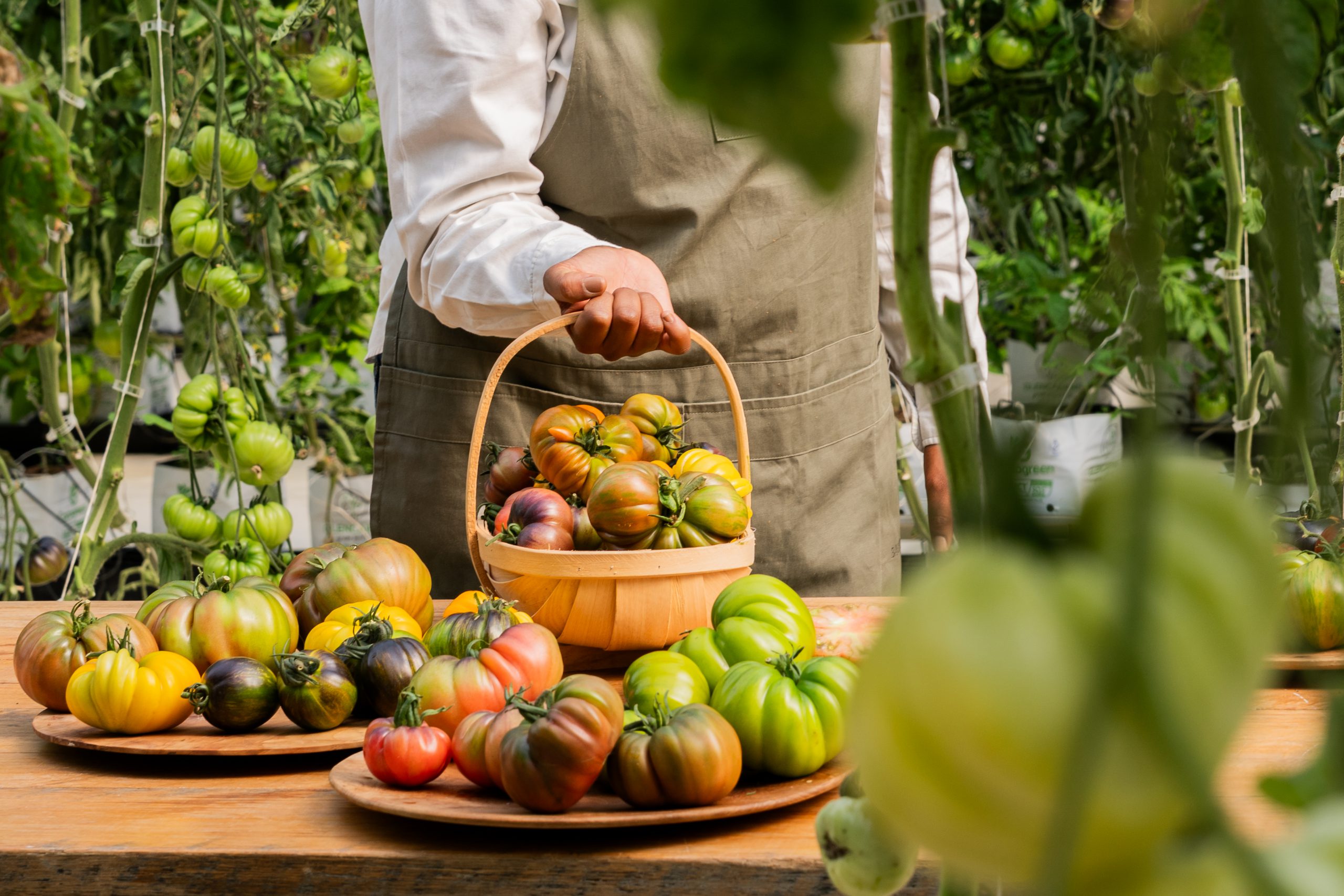Chicken Out
May 15th, 2018Free-roaming chickens can often be spotted scratching in the garden and plucking pesky bugs off our farm produce. We have five different types of chicken here at Babylonstoren – Boschvelders and Potch Koekoeks in the garden, as well as the Leghorns, Araucanas and Lohmann Browns that are looked after by farmer Christo. We collect their eggs daily to be served at Babel and the Greenhouse, and there’s always a fresh supply available to purchase at the Farm Shop. They never fail to charm our guests and make up a hard-working part of our farming staff.
Chickens are very easy to keep and play a host of helpful roles in the garden and kitchen: they’re fantastic at ridding your garden of insects and snails, and a small brood of about six chickens can lay enough eggs to feed a family of four to six people. Apart from their usefulness, there is something intrinsically therapeutic about keeping chickens – their determined busyness and gentle companionship make them perfect family pets in even smaller-sized gardens. Chicks take about six months to mature into laying hens, after which they will provide you with a steady supply of eggs and delightful company in the garden.
Tips for keeping chickens at home
- All a chicken needs in the garden is a safe, covered shelter at night to sleep and space to scratch and explore during the day. Calculate 20 cm space per hen in the chicken house for comfortable settling down at night.
- Provide the chickens with a perch about 60 cm high – not too tall, as they are prone to injure their feet jumping down. Let them out early in the morning for their first insect run.
- The chicken house must be airy and dry to avoid disease, and a few shady spots are crucial for summer.
- Cover the floor of their home with straw and clear the manure out daily when you collect the eggs. Soiled straw from the coop makes a fantastic mulch and fertilizer in the garden.
- Happy hens require a clean supply of water and to be fed once a day with a good brand of chicken food or offcuts from your kitchen. Chickens can eat almost any cooked or raw veggie scraps, except onions. Avoid laying out cooked meat to feed them, as this can lure rats. Be careful not to over-indulge them, as a fat hen won’t lay as much and will have a shorter life.
- Access to vegetation is very important. If the birds are restricted indoors, hang it in the chicken coop for their amusement. We’ve had great success with our chicken gym, replete with nutritious leafy greens, encouraging them to jump for their food. It keeps them nice and fit, and they lay more eggs!
- Apart from collecting the eggs daily, chicken manure should also be collected. We cover the floor of our hen house with straw. The straw is then used as a mulch, with the chicken manure as fertiliser.
Our free-roaming happy hens
